Commencement Time
Ekantha Seva at Tirumala typically begins at 01:30 AM, marking the conclusion of the day's rituals and prayers.
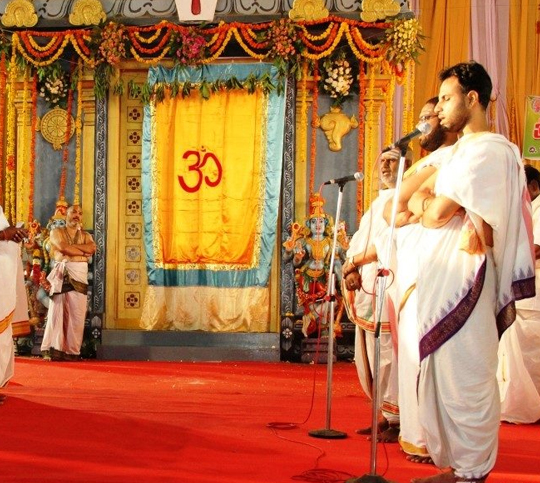
Ekantha Seva, a revered ritual in Hindu temples, is performed to honor deities, usually at the end of the day. This service is characterized by an intimate and tranquil atmosphere, where the deity is believed to rest after the day's proceedings. In many temples, including the famous Tirumala Venkateswara Temple, Ekantha Seva is marked by the singing of lullabies and hymns, creating a serene environment. Devotees believe that participating in or witnessing Ekantha Seva brings peace and blessings. The ritual underscores the humanization of the deity, fostering a personal connection between worshippers and the divine. This nightly service highlights the profound spiritual intimacy and devotion in Hindu worship practices.
| S.No | Aspect | Details |
|---|---|---|
| 1 | Beram being used | Bhoga Srinivasa Murthy |
| 2 | Venue | Shayana Mantapam |
| 3 | Timing of the Seva | 01:30 AM |
| 4 | Devotees and Seva Fee | Not allowed |
| 5 | Exception | None |
| 6 | Special Feature | Performed daily except during Dhanur Maasam |
| 7 | Musical Offering | Annamayya keerthanas sung by a descendant of Annamacharya |
| 8 | Harathi | Performed with a pearl-studded plate depicting a Dasavathara |
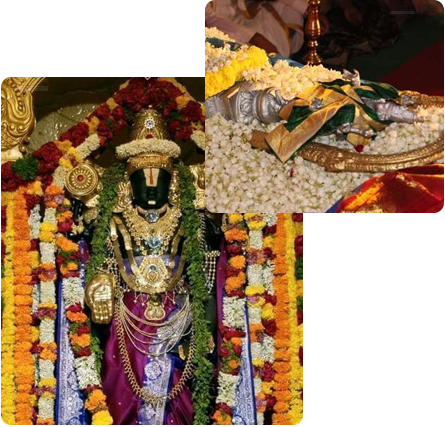
Ekantha Seva at Tirumala is the final ritual in the daily sequence of sevas. For eleven months of the year, excluding Dhanur Maasam, the silver idol of the principal deity, Sri Bhoga Srinivasa Murthy, is placed on a velvet bed within a swinging golden cradle in the Sayana Mandapam. A descendant of the poet devotee Annamacharya sings Annamayya keerthanas to serenade the Lord into sleep. Additionally, Tarigonda Vengamamba’s Harathi is performed using a plate adorned with a pearl-studded image of one of the Dasavatharas, with a different plate and avatar depicted each day. Perfumed sandalwood paste biscuits are placed at the feet of Lord Sri Venkateswara and on the chest of Bhoga Srinivasa Murthy and Alamelumanga.
During Ekantha Seva, the Lord is offered various sweets, milk, fruits, and other items. This intimate and serene ritual underscores the deep devotion and personal connection worshippers feel towards the deity. Bhoga Srinivasa Murthy occupies the cot for eleven months, symbolizing the Lord's rest. However, in the twelfth month of Dhanurmasa (Margali), it is Sri Krishna who is ceremoniously put to sleep. This change highlights the special significance of the Dhanurmasa period and reflects the rich tapestry of rituals and traditions upheld at the Tirumala temple.
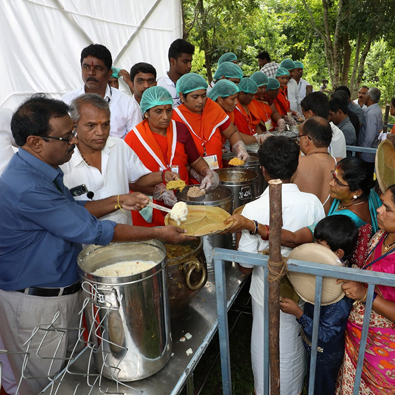
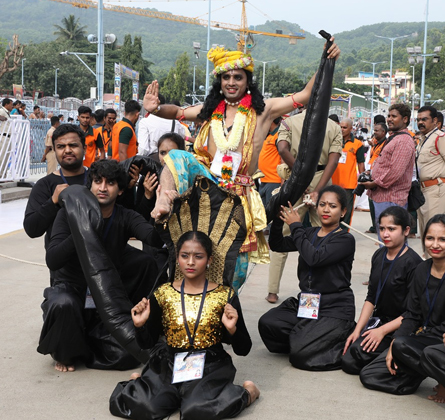
After the conclusion of Ekantha Seva at Tirumala, a notable ceremony unfolds as the Bangaru Vaakili doors are securely closed and sealed. Following this, the keys to these sacred doors are handed over to the appointed custodian, symbolizing the entrusted responsibility of temple guardianship. The subsequent morning witnesses a moment of deep reverence as the custodian presents the keys and, in the presence of the divine, ceremonially unlocks the temple doors, marking the beginning of a new day dedicated to spiritual devotion and worship.
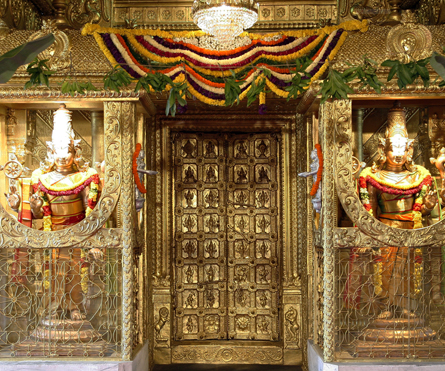
No, entry to the temple is free for all visitors.
Temple is open from 6:00 AM to 8:00 PM daily.
Yes, various rituals like Thomala Seva, Sahasranamarchana, and Abhishekam are conducted.
Yes, you can perform Nithyarchana or Sasvatha Nithyarchana for one or a lifetime.
Yes, the temple offers prasadam like Chakkara Pongali, Pulihora, and Pongal.
Photography might be restricted in certain areas of the temple premises.
Yes, there are lodging facilities available nearby for devotees.
The temple is located 12 km west of Tirupathi.
Yes, special pujas can be arranged for families upon prior request.
Yes, the temple premises are accessible, and assistance is available for those in need.

